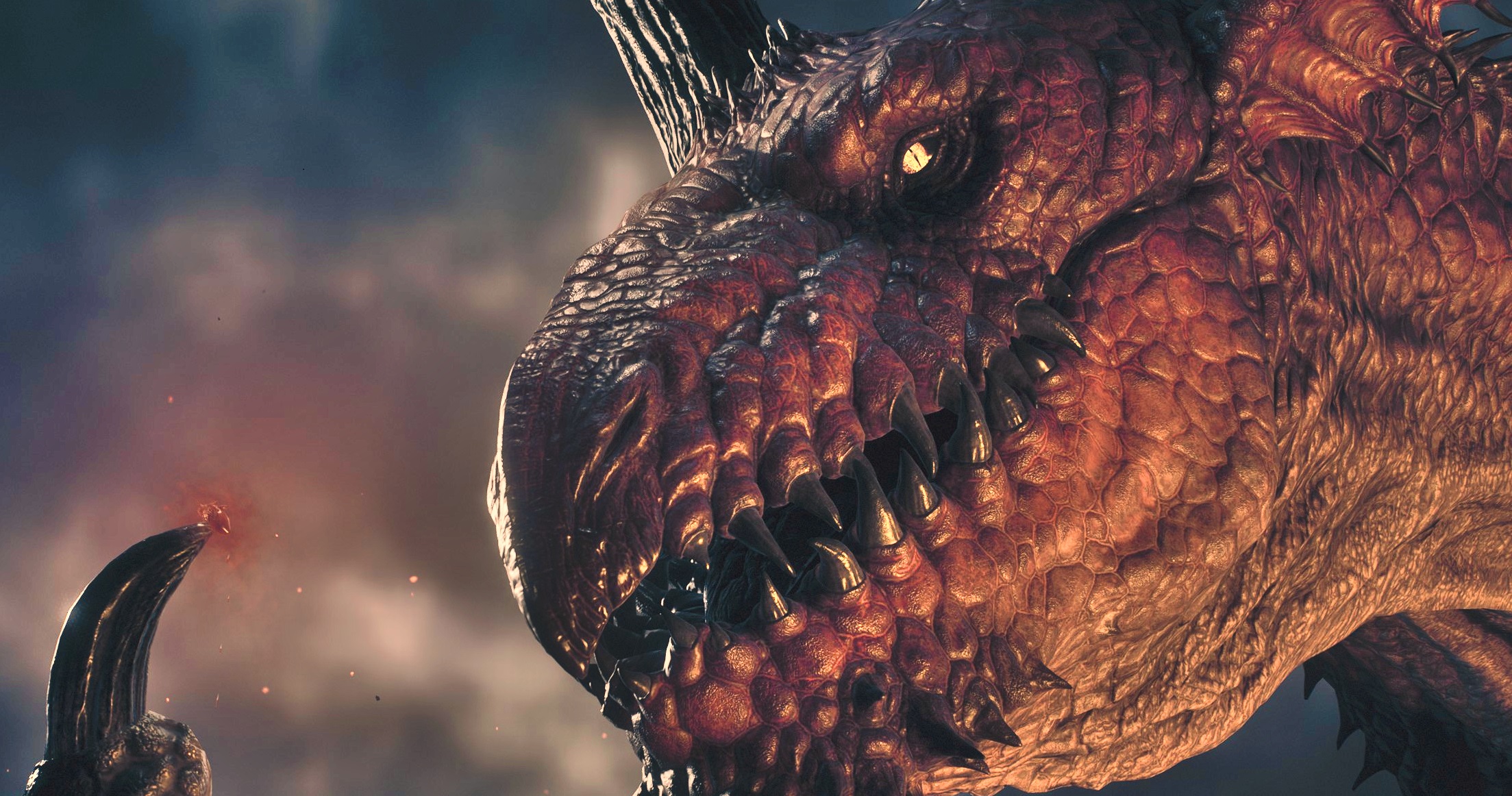Our Verdict
A magnificent adventure with impressive fights and some very rough edges.
PC Gamer's got your back
What is it? An open-world RPG sequel full of weird companions and gargantuan monsters.
Release date March 22, 2024
Developer Capcom
Publisher Capcom
Reviewed on RTX 4090, Intel i9-13900k, 32GB RAM
Steam Deck N/A
Link Official site
My journey through Dragon's Dogma 2 has been a tumultuous one: glorious, thrilling, accidentally hilarious, frustrating, maddening—all the adjectives. It is one of my favourite RPGs, but also a huge pain in the arse. Whatever you feel about it by the end of your own adventure, I guarantee this is a game that will be talked about for a long time.
Even though it doesn't massively deviate from the first Dragon's Dogma, and at times evokes the likes of Monster Hunter and Elden Ring, it still feels like a singular game, overflowing with memorable moments: monumentally epic battles with sun-blotting behemoths, slapstick encounters with goblins who are just begging to be picked up and thrown around, the endless charm of your NPC companions. Every few minutes, a new anecdote is generated.
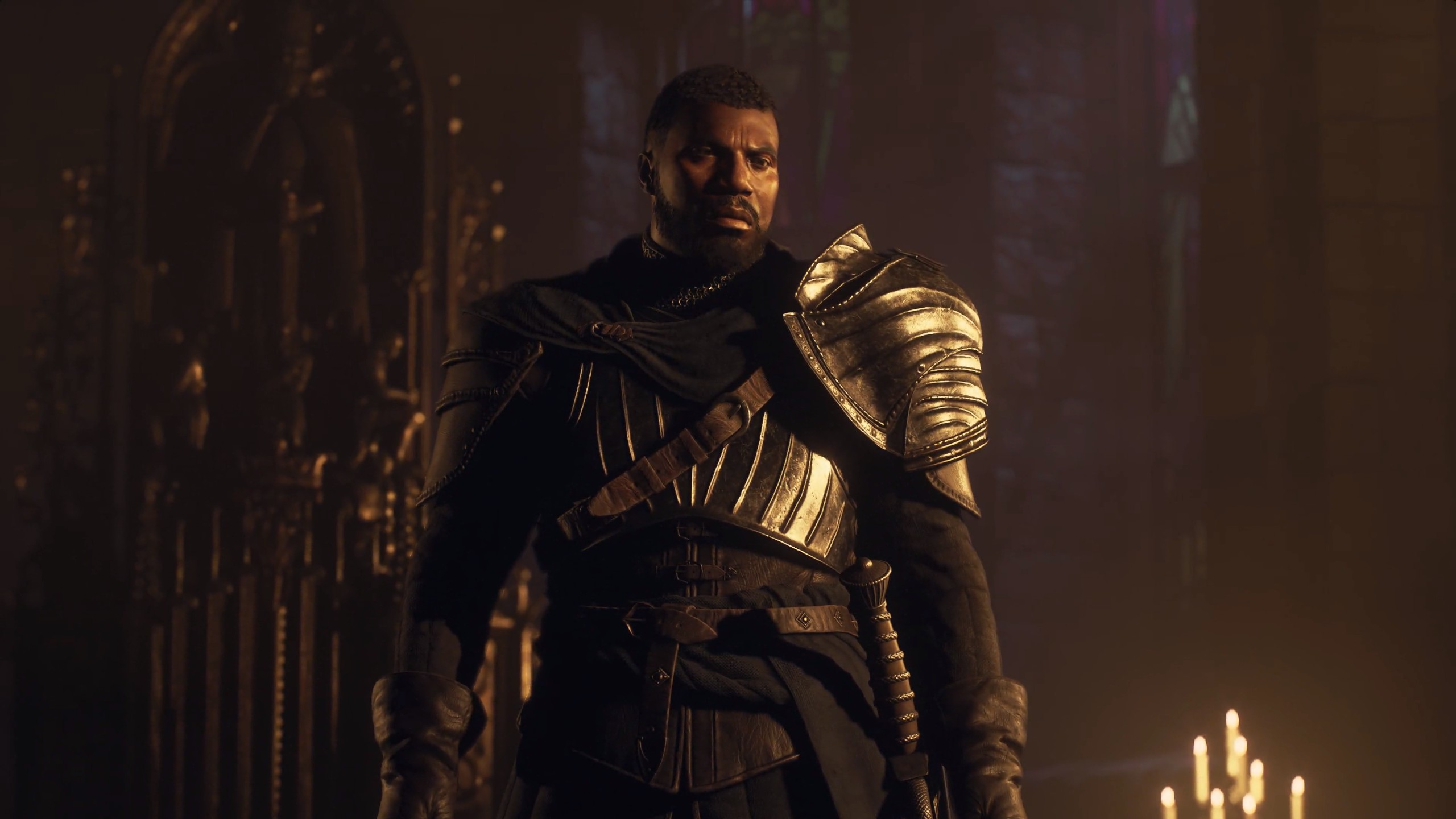
You are the Arisen, a soldier killed by a dragon, returned to life despite the absence of a heart. Whenever the dragon appears, a new Arisen also appears, their fates intertwined. The dragon is always destined to make an Arisen, and the Arisen is always destined to fight the dragon. Except this time there's another claiming the title of Arisen, and with it the mantle of Sovran of Vermund—a monarch, essentially—kicking off a political conspiracy that weaves its way through countless fights with massive monsters.
Despite constantly flinging flat characters and stiff dialogue at you—everyone's lines are laden with faux medieval affectations and po-faced seriousness—the story itself is a creative yarn that's so much more elaborate than it needs to be, given that much of the series' appeal comes from clambering on top of angry beasties and murdering them. While many of the main beats are predictable, the narrative is constructed in such a way that it still manages to feel incredibly novel, like a FromSoftware joint but with a story that is much more accessible and explicit.
That said, I couldn't give a toss about any of the scripted NPCs. There is a half-hearted romance and friendship system, where you can go on dates, while also giving and receiving gifts, but it feels dreadfully underbaked. The pawns, though, are a different matter. I would die for them. Especially my main boy, Gorbo the goblin.
Pawn crackers
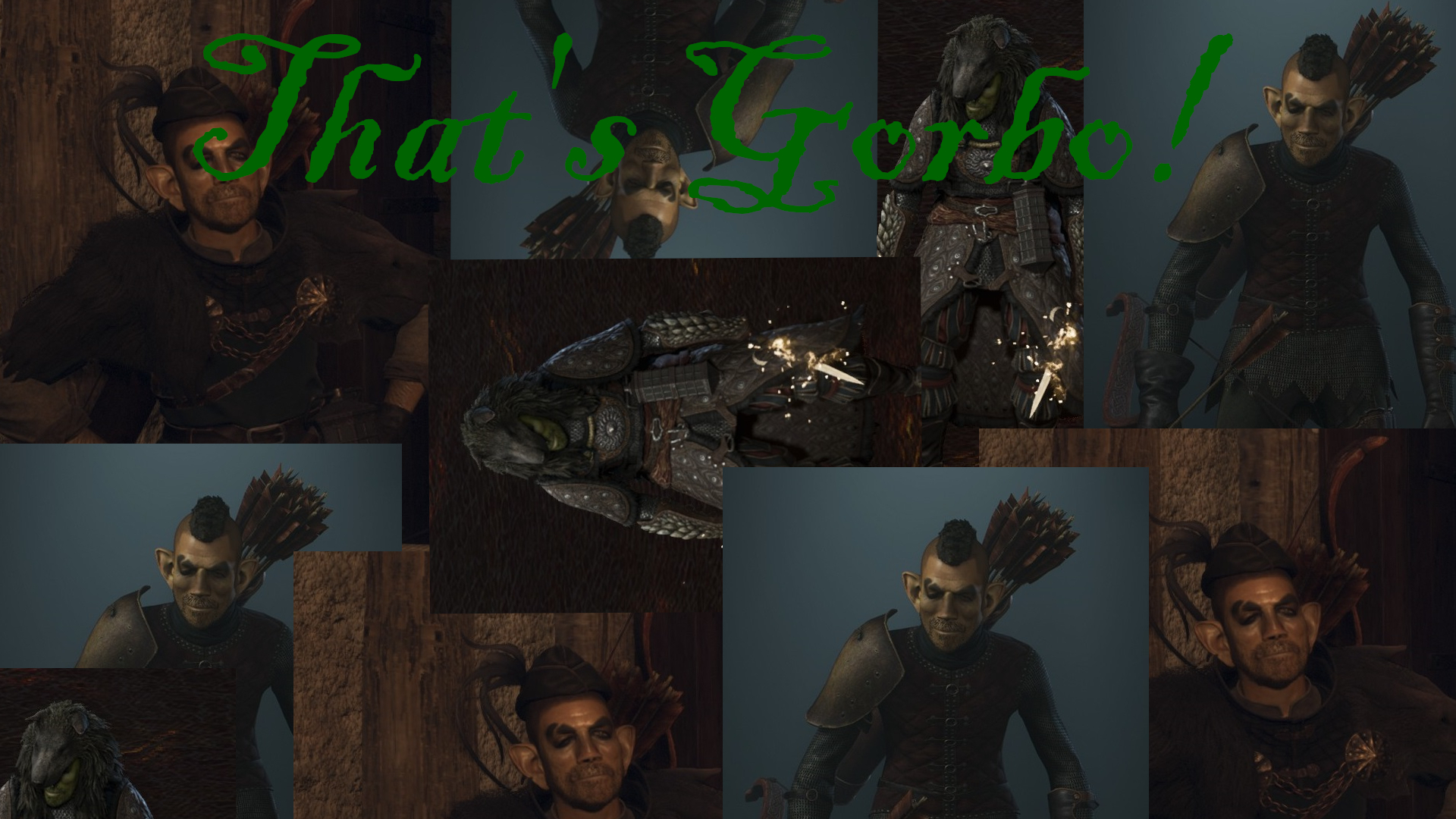
Pawns are your loyal, chatty companions, putting their lives on the line for you every day. There's your main pawn who will be with you always, levelling up alongside their master, and you can recruit two more made by other players or Capcom. These extra pawns won't level up while in your employ, so you'll be recruiting new ones frequently, giving you a constantly changing cast of oddballs and eccentrics to pal around with.
Your main pawn can be customised using the same character creator you used to build your Arisen, and it's a joy to play around with. It's so detailed you can select individual teeth to remove. Every tattoo and scar can be resized, rotated, moved around and recoloured. By stretching and shrinking pretty much every single body part, you can make an Adonis or an abomination. Technically, you can only make humans and beastren (big kitties), but you can unofficially create elves, orcs, goblins or your own unique nightmares.
I could not have gotten through the game without the assistance of these wonderful little helpers.
Pawns are essential in combat, letting you shore up any of the weaknesses inherent in your own skillset. And they are generally very effective, apart from that one Fighter I recruited who was meant to throw me onto an ogre's back but instead chucked me off a mountain. Their practical applications extend well beyond brawls, though. Pawns you've recruited share their knowledge with you, pointing out caves and treasure chests they've encountered with a previous master, which are then marked on your map. They'll also unlock more esoteric knowledge through their adventures and misadventures. Recruiting a pawn who'd killed a bunch of ogres is how I know that ogres are obsessed with women, and will usually try to attack them first. Yep, ogres are incels.
While pawns are content to do their own thing, you still have some control over them, commanding them to take you to points of interest, help you if you're injured or unconscious, and wait in a specific spot to make sure they stay out of trouble. They can even serve as quest guides, which is especially handy given how vague the quest descriptions can be. Dragon's Dogma 2 expects you to figure out everything yourself, and I could not have gotten through the game without the assistance of these wonderful little helpers.
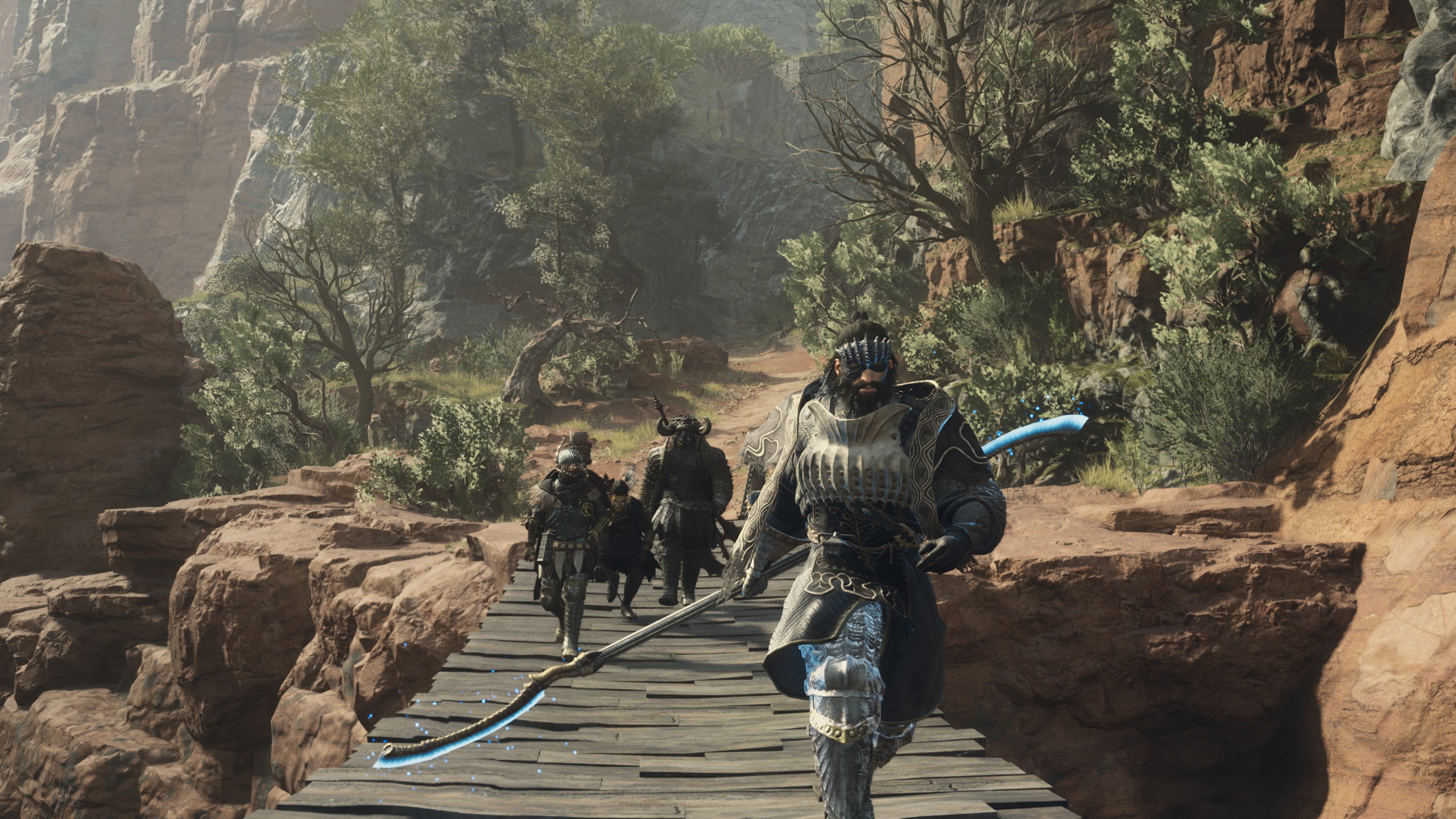

For the first few hours, Dragon's Dogma 2 ran well on my extremely beefy rig, but the moment I hit Vermund's capital things dramatically changed. In the wilderness, I comfortably get 80-100 fps, but in the city the framerate rarely gets much higher than 60 fps and often dips to 40 fps or lower. We found that it's very much CPU-bound, but you're going to need both a high-end GPU and CPU to get decent performance, except in cities, where it's always going to be a bit of a mess. If you're using a low or mid-budget PC you're unlikely to get higher than 60 fps even outside of cities and on low settings. For more details on the performance issues, check out our performance analysis.
Your own pawn can also learn new things when they're recruited by other players, so it pays to make them as attractive as possible. I don't mean you need to make a hottie—though that's certainly a strategy a lot of players employ—you just need to give players a reason to hire them. Giving them unlockable specialisations that let them forage, craft, sell unwanted goods or heal players will absolutely get them more gigs.
It's through pawns that you can trade with other players by sending them away with gifts or making requests through the pawn quest system. I'm always in need of more carrying capacity because I can't help but pick up everything, so I often request golden trove beetles, which bump up the weight limit a little bit. When anyone sends me one, they get 2,000 gold from my own pocket.
There's something comforting about just hearing them chat away to each other, too, or share bits of gossip about their other masters. Like how they only ever travel with beastren, or exclusively fill their party with women. It feels like I'm in a proper RPG adventuring group, and each journey is made better by their company and funny little eccentricities. Which is a relief, because you'll be going on a lot of very long trips with them.
Rambling
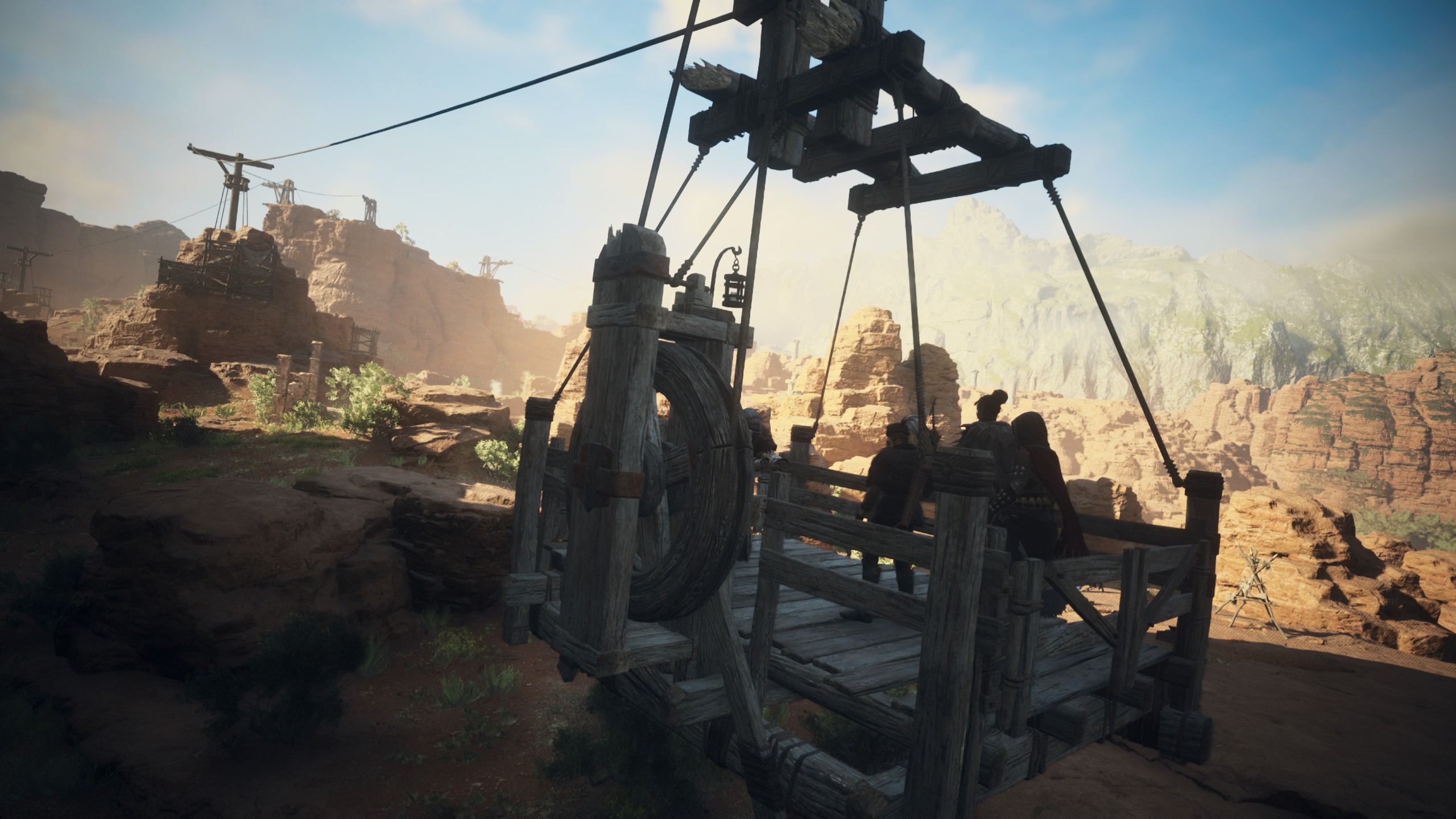
The world of Dragon's Dogma 2 is vast, with two main regions—one covered in forests and fields, the other scorching and arid, punctuated by the occasional oasis—as well as a smaller volcanic island that you'll likely only visit near the end of the game. Its vastness is not simply down to its literal size, though—there are plenty of other RPGs blessed with a greater scale and more densely packed. What makes Dragon's Dogma 2 feel gargantuan is the limitations placed on fast travel.
Only a few locations have fixed fast travel points (you also get a small number of portable ones you can plonk down), and you can only use them if you've found a ferrystone. By the end you'll probably have quite a few, but the system discourages you from using them often. A few settlements also feature an ox cart, essentially a taxi service that you need to pay for. While on the cart, you can doze off, making travel instantaneous, but you might also be set upon by monsters, forcing you to defend the cart lest it be smashed to bits.
The camping system is, low key, one of the most impactful additions to travelling around the world. Campsites are dotted all over the map, allowing you to take a kip and cook up a meal, netting you a variety of bonuses. The real boon, though, is that it allows you to escape the dreaded hours between sunset and sunrise. Nighttime adventures can be thrilling, but sometimes you don't want to run through a pitch-black forest with your lantern only giving you a mere glimpse of the threats ahead of you. You still need a tent, however, and while tents technically have infinite uses, enemies can raid your campsite and destroy them.
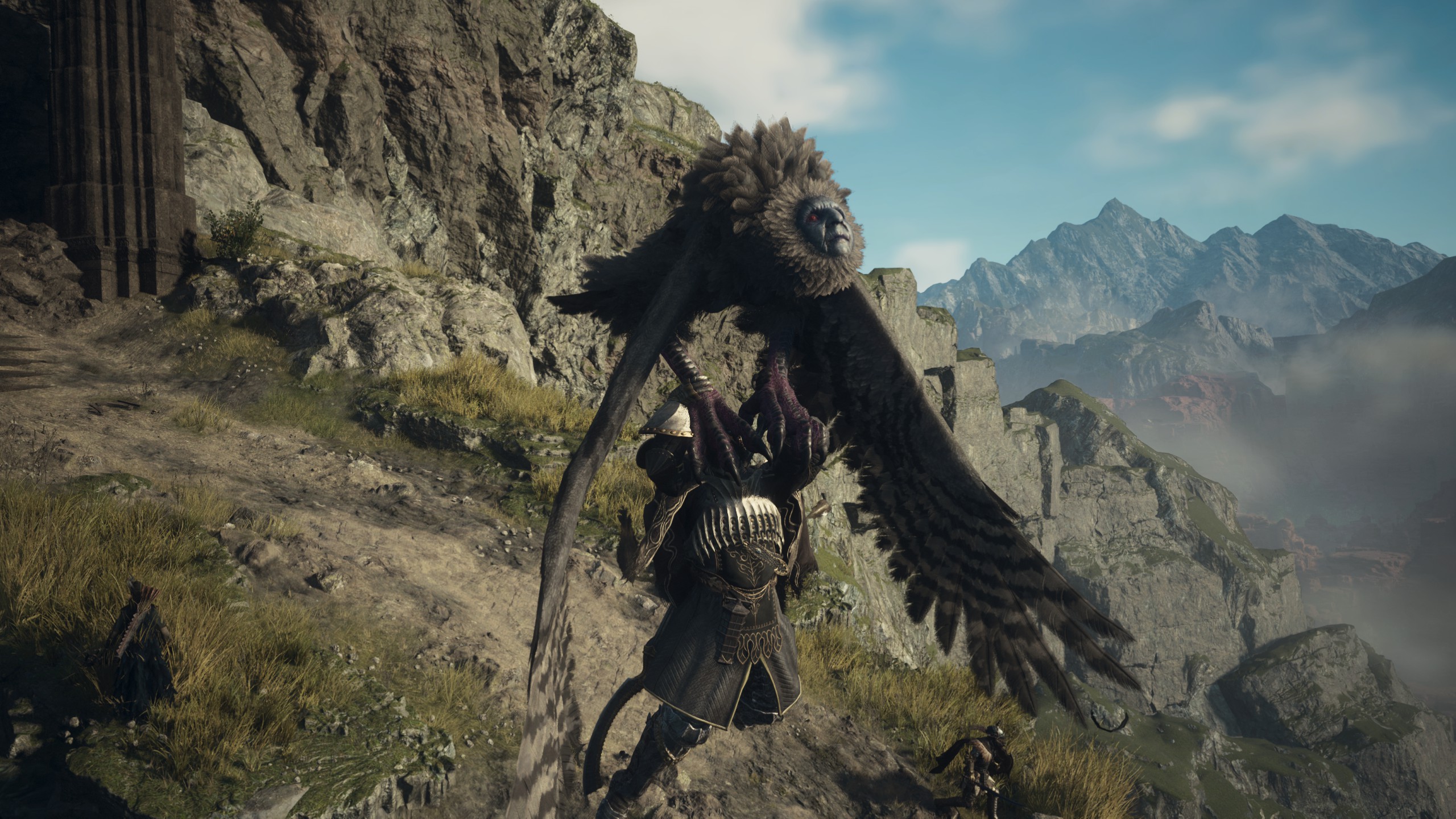
So there are more conveniences than the original game, but the concept of slow and methodical exploration is undeniably maintained. Indeed, thanks to camping you're encouraged to spend even more time in the wilderness. If I'm in a rush, there are alternatives, but so much of what makes Dragon's Dogma 2 memorable happens when you're on a long journey.
This is a game made up of thousands of random adventures, often in locations you're not explicitly told to visit. Sure, there are a multitude of quests, but these are less of a driving force behind exploration than your own desire to see the world. For no other reason than I felt like it, I spent an entire evening wandering through a mist-shrouded village where I got chased by ghosts, and then got turned around in some caves where I bumped into a certain infamous mythical creature who challenged me to a game of riddles. It ended up being one of my favourite adventures.
So much of what makes Dragon's Dogma 2 memorable happens when you're on a long journey.
Exploration also spits out some fun environmental puzzles, mostly relating to how to reach tantalising chests or dungeon entrances. Mages and Sorcerers can levitate, which often proves to be the solution. But you might also need to hitch a ride on a harpy, toss a pawn, or deploy some explosives. There's usually more than one way to get to where you need to go, and that includes parts of the critical path, allowing you to creatively skip some steps and uncover alternate routes.
When you are on a quest, they often forgo explicit instructions, and even when you do get quest markers they might just point you towards a large area rather than a specific location, so exploring on your own initiative is essential. A lot of the time, this is great! Dragon's Dogma 2 expects you to engage your brain and actually solve problems. But then there are those times when you'll be staring at your monitor at 2 am, screaming "Just tell me where to go!" I have been there and it sucks.
Dazed and confused
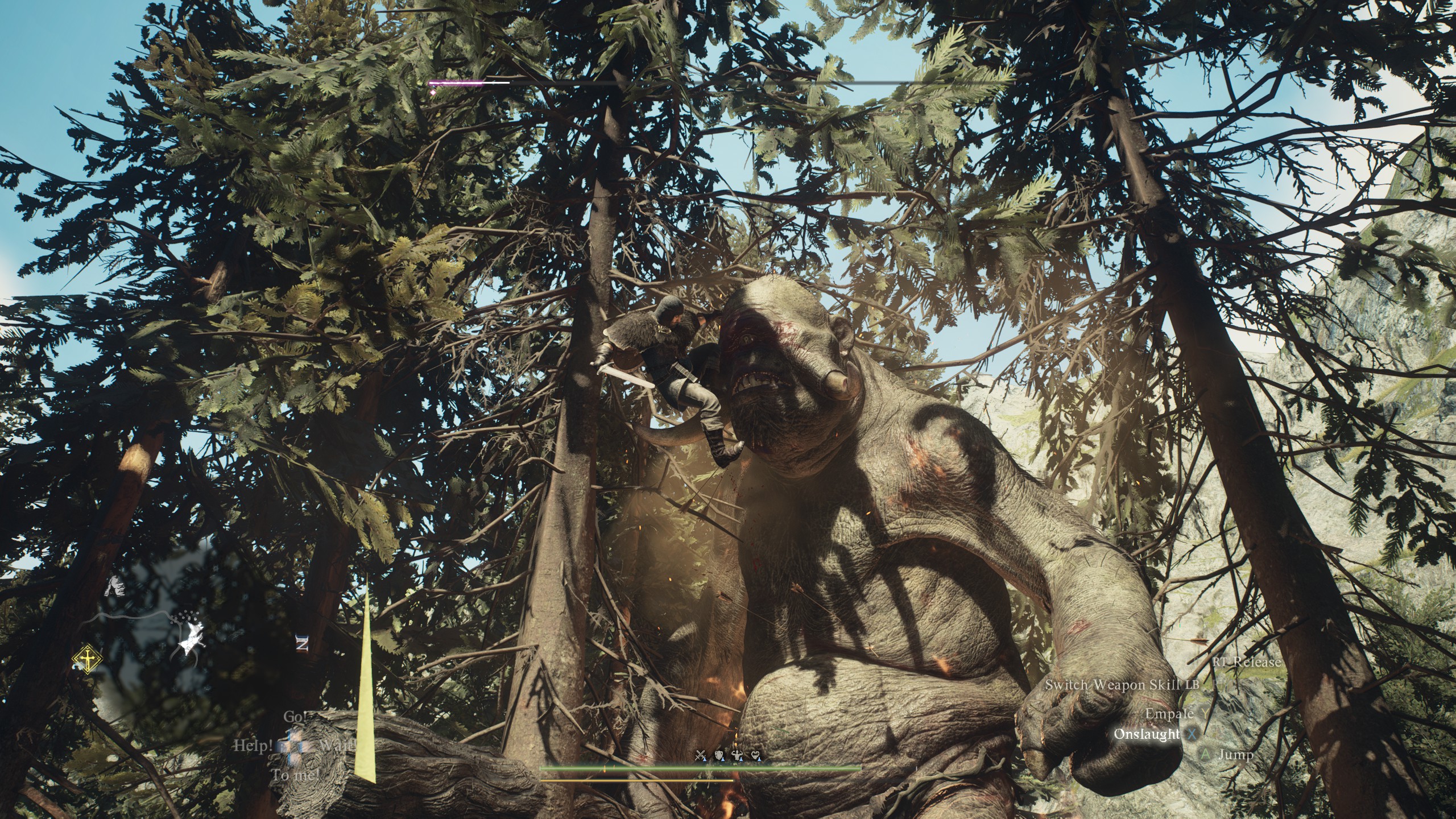
Dragon's Dogma 2 sometimes makes me feel like I'm going mad. Some quests are just so obstinately vague that you just have to hope you stumble onto a solution. I have had many long discussions with Sean, who's been writing a lot of our Dragon's Dogma 2 guides, where neither of us can figure out if we've missed something or we've been the victim of a bug—sometimes it's both!
For instance, one of the vocations I wanted to try out was Mystic Spearhand. This is an Arisen-specific class, so pawns can't use it, and it mixes both martial and magical skills to devastating effect. You can use telekinesis to lift up debris and small enemies, magically dash towards foes or up into the air, create arcane shields that deflect all damage, and simply go to town on a foe with your deadly, spinning duospear. But I had no idea how to unlock it.
It was only after speaking with Capcom that I realised a conversation didn't trigger after a fight. I was meant to meet the fella who'd unlock the vocation for me, but that never happened. And he was no longer in that village. Eventually I found him in another village and finally unlocked the vocation—lots of fun ensued. But it would have simply been impossible to figure this out myself.
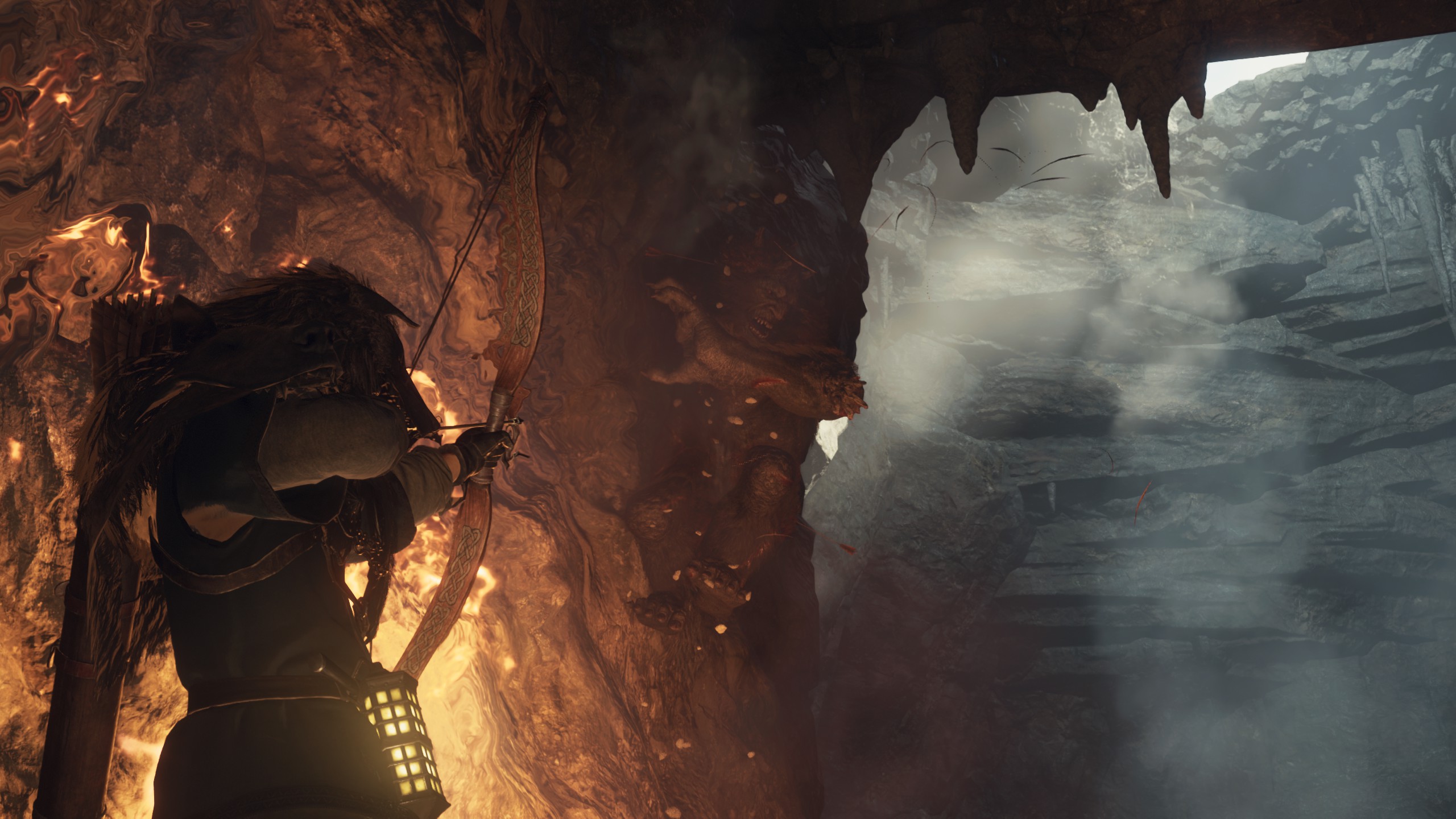
It's worth noting that after a certain point, near the end of the game, the locations of these NPCs are revealed, but I've encountered plenty more issues where there's been no resolution. There are a couple of extremely powerful spells, for example, that it looks like I'll never be able to use until a fix is deployed. These are connected to an elaborate quest that simply stalls at the end for me, trapping the NPC in a loop. I tested this quest in my second playthrough and the bug persisted, though Sean managed to get through it with no issues, so your experience could vary.
Playing again has revealed just how much I missed the first time around, not because I didn't explore enough, but because quests didn't work as intended. I've also discovered new issues, where quests that worked before have broken down. Often the problem lies with NPCs, who might not show up when they are meant to, or will simply vanish when they should be following you.
In so many instances, though, I kept trying to stick with these broken quests because it's genuinely so hard to tell if it's a bug or just a product of some weird design choices. Occasionally, the quest log will straight up give you instructions that are outright wrong, like telling you to talk to a specific person when you will never actually be able to meet that person. My biggest disappointment was missing out on a critical battle near the end of the game because the log entry didn't have the hour glass icon, which tells you when it's a time-sensitive quest. When I realised the quest was progressing without me (thanks to some out-of-context cutscenes) it was too late to reach the location in time.
Monster hunter
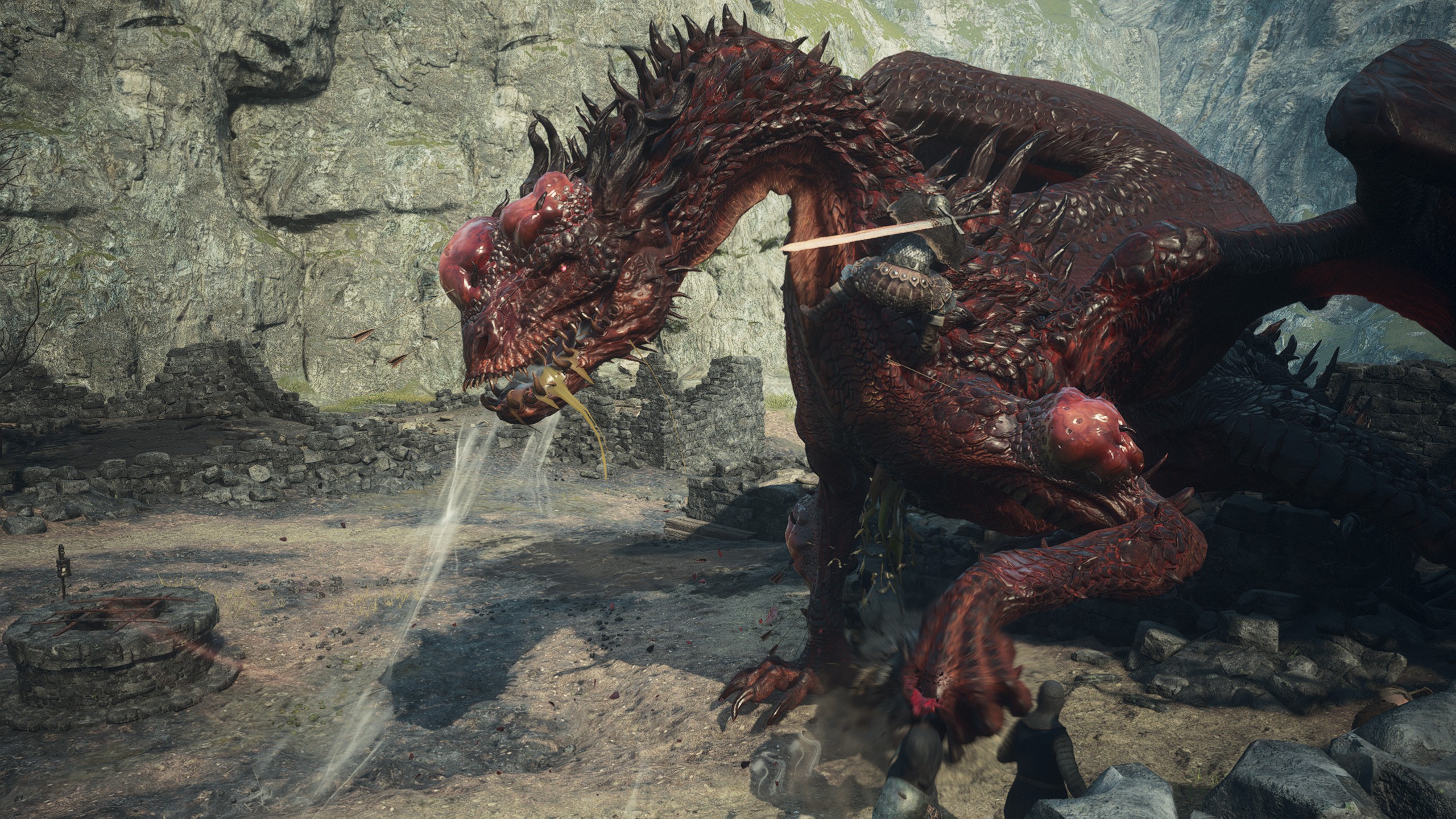
Every time I've wanted to take a break because I've been stumped or run afoul of a bug, Dragon's Dogma 2 drags me back in. And a monster is usually responsible. I've killed so many of them by now, but the elation I feel when I set fire to an ogre, push a cyclops off a cliff, or get trapped on the back of a griffin as it flies to the other side of the map has yet to subside. Usually, these are surprises rather than scripted events. Monsters have their own lives, duking it out with NPCs, hunting other creatures, or taking a well-earned nap. And then you show up and murder them. Who's the real monster, eh? It's the monsters. The monsters are the real monsters.
The combat system is just so phenomenally tactile and kinetic, where each fight becomes a product of countless decisions and environmental factors.
The combat system is just so phenomenally tactile and kinetic, where each fight becomes a product of countless decisions and environmental factors. At its most basic, that might just mean grabbing a loose boulder and chucking it at a dragon. But what if there are no boulders? Well, maybe you should summon a wall of ice, which you can then smash, and now you've got some massive ice cubes to throw around. Whenever you bump into a monster, it's a new opportunity to experiment, and the ease with which you can switch vocations and recruit new pawns means the party dynamic is always changing.
Archers have that deadly precision, effortlessly hitting those lovely weak spots before legging it to avoid the long reach of an ogre or a dragon's nasty breath. Sorcerers have god-like powers, summoning screen-filling tornados or the aforementioned walls of ice—not just damaging enemies, but also allowing their teammates to take advantage of the high ground, leaping from the ice wall, blade at the ready, before shoving it into a monster's face. The melee classes, meanwhile, are at their most delightful when using enemies like climbing frames, scurrying all over them and looking for a soft part to stab.
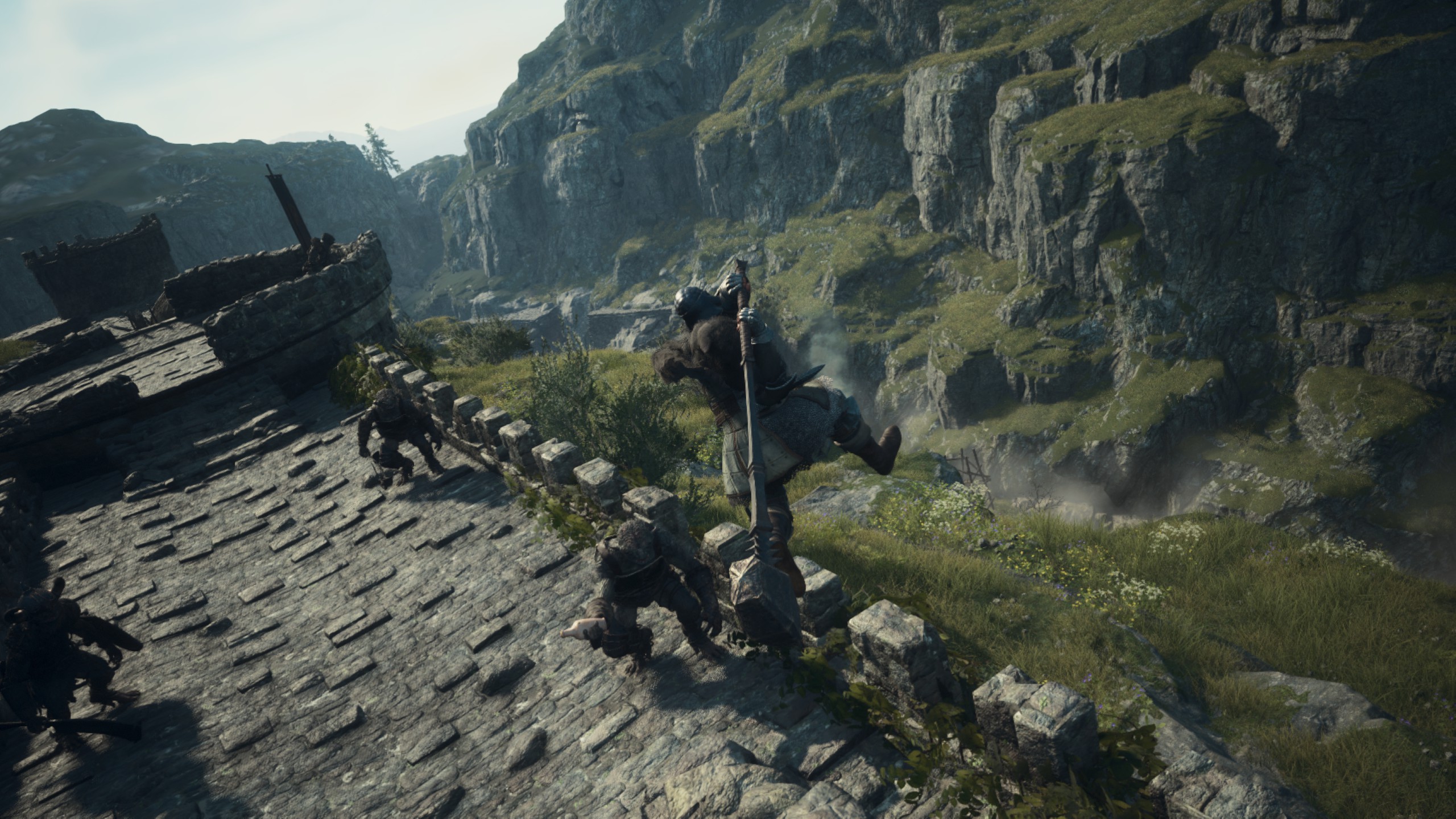
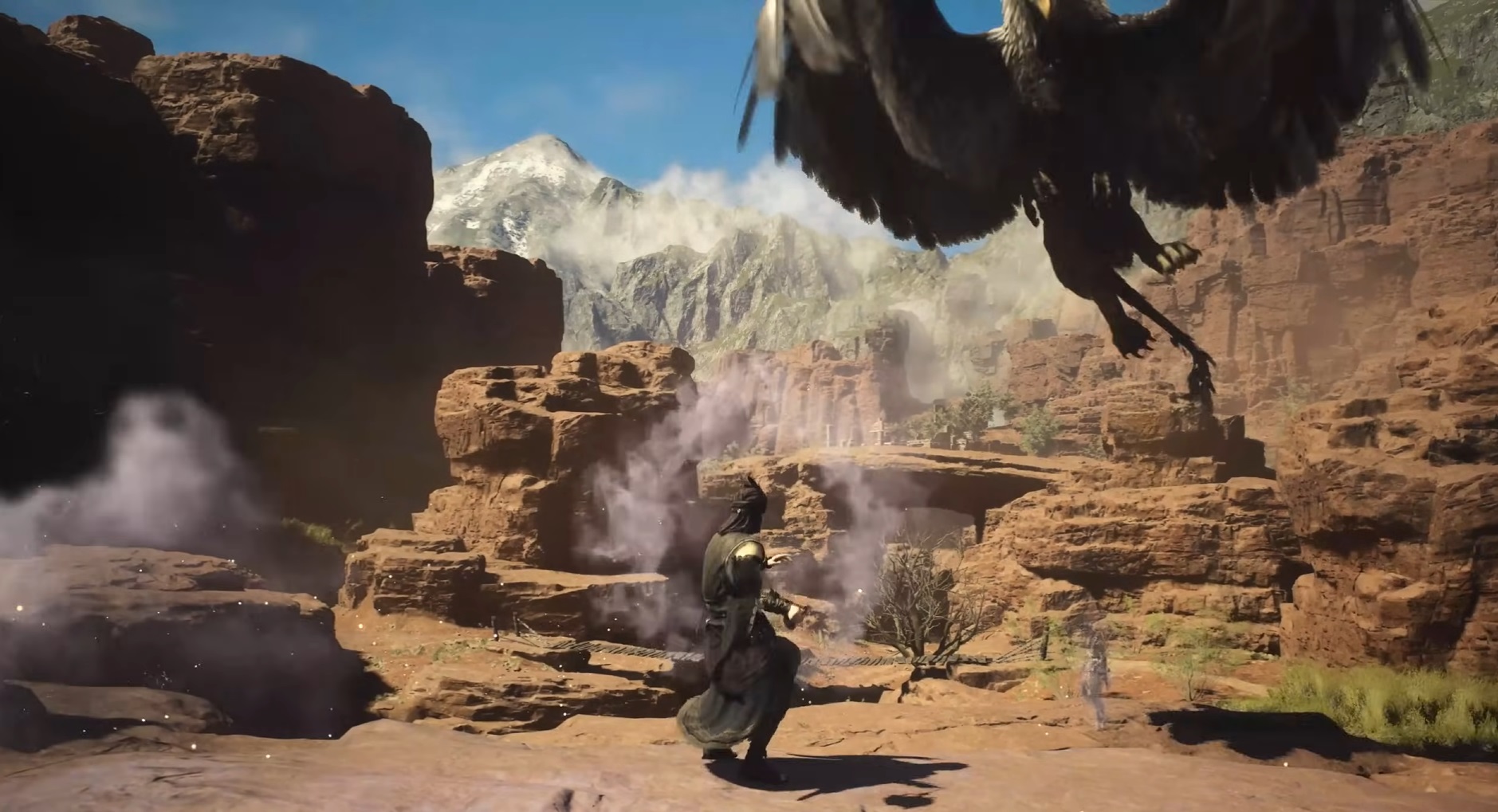
Dragon's Dogma 2's most unusual vocation is the Trickster, and boy is it weird. And wonderful. This class is all about manipulating the battlefield, acting as a puppeteer who baffles and befuddles enemies with illusions. It hardly does any direct damage with its weapon, instead using it to obfuscate, while also summoning clones and tempting enemies to fall to their depths as they leap forward, thinking there's ground beneath them when there most definitely is not. Scouting and planning is essential, and it's a tricky class to learn, but it's like nothing I've ever played in an RPG before.
Every vocation has a meaty list of skills, though only four can be slotted into your loadout at a given time. That's still one more than the first game, at least. And it feels like plenty, especially when you consider all the extra utility pawns offer. On top of your four slotted weapon skills, you've got each vocation's core skills—like the Mage's group heals, or the Mystic Spearhand's stun, which can be upgraded to include a follow-up that lets you magically dash towards the stunned enemy.
As you level up you'll also unlock augments for each vocation, and these can still be used when you switch to another one. Some of these are combat-specific, like the Mystic Spearhand's Polarity augment, which buffs their martial attacks during the day and their magical attacks at night, but others have broader applications, like the Sorcerer's augment that slows down the rate of plants and food rotting in your inventory. This allows you to concoct unique builds and encourages you to experiment with different vocations instead of staying in your comfort zone, allowing you to really experience the impressive breadth of the class system.
At the time of writing, I have put a fair amount of time into all but one vocation, which I'm yet to figure out how to unlock. One of many mysteries I'm still working on. I feel like I'm still just scraping the surface, even after 100 hours. I suspect I've got at least 100 more in me.
On the road again
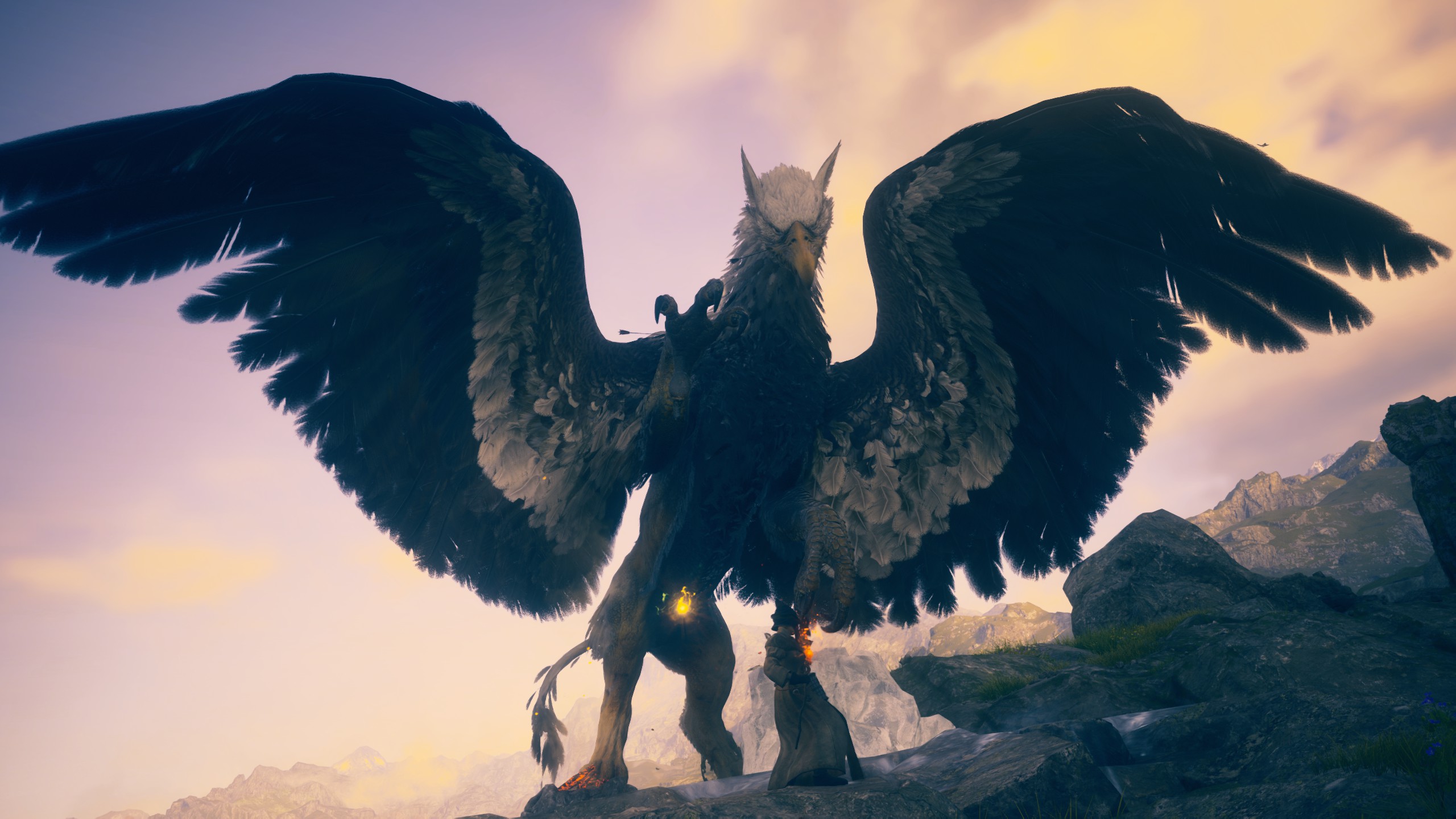
I finished Dragon's Dogma 2 at 7 am on Sunday morning, after an all-nighter that I deemed necessary because, oh boy, what a climax. I should have gone to bed. I could barely keep my eyes open. But I did not go to bed. Instead, I immediately started a new game, resetting the story but keeping most of my items and all of my levels. I then proceeded to play for five more hours before I literally passed out.
This is extremely unhealthy and you should not do this, but I wanted to share this embarrassing anecdote about a 38-year-old man ignoring all good sense, because—aside from showing how terrible I am at making decisions—it probably encapsulates how much Dragon's Dogma 2 has me in its grip better than the thousands of words above it. Yes, it's janky. Yes, it's absolutely going to need some patches to fix the performance issues and bugs. And even then it's going to be a pain in the arse because of some very annoying quests. But bloody hell do I love this weird, ambitious RPG.
In 2022, I wrote "Please don't change anything for Dragon's Dogma 2". Obviously Capcom hasn't just made the same game again—the quests are more impactful (if wonky), the world is bigger, the combat is more elaborate, and there are some welcome quality of life features. But really this is just more Dragon's Dogma. More huge monsters to fight, more adventures with a wonderful cast of pawns, more creatures to pick up and throw at their pals. It is very good and I am very, very tired.
A magnificent adventure with impressive fights and some very rough edges.

Fraser is the UK online editor and has actually met The Internet in person. With over a decade of experience, he's been around the block a few times, serving as a freelancer, news editor and prolific reviewer. Strategy games have been a 30-year-long obsession, from tiny RTSs to sprawling political sims, and he never turns down the chance to rave about Total War or Crusader Kings. He's also been known to set up shop in the latest MMO and likes to wind down with an endlessly deep, systemic RPG. These days, when he's not editing, he can usually be found writing features that are 1,000 words too long or talking about his dog.
